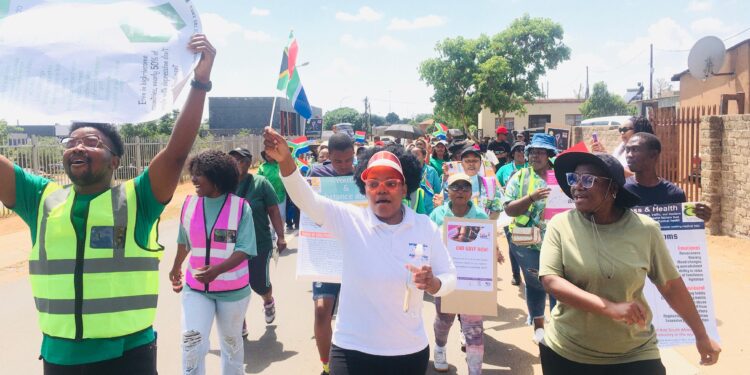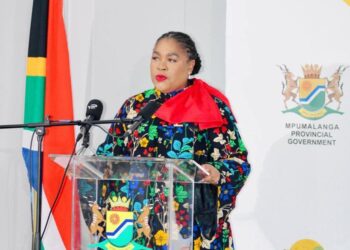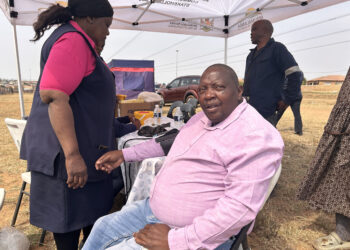Middelburg – The Mpumalanga Mental Health Society (MMHS) hosted a mental health awareness walk on 10 October 2025 at the Adelaide Tambo Community Hall in Middelburg.
The event under the theme ‘Walk for Change’ brought together community members, organisations and government representatives to advocate for stronger implementation of mental health policies and programmes across the province.
MMHS Director, Thandeka Nhlapo, said the event marked a shift from simply raising awareness to demanding tangible actions for addressing mental health.
“We call it a ‘Walk for Change’ because people are already aware of mental health issues and now we want to mobilise stakeholders to take action,” said Nhlapo. “Mental health must be prioritised just as much as physical health and all stakeholders must play their part in promoting mental wellness and preventing mental illness.”
Nhlapo said although South Africa has a Mental Health Care Act and relevant policies in place, there is little evidence of implementation on the ground.
“The Mental Health Care Act looks good on paper but in practice, it’s not happening. For example, Section 40 outlines how [the] South African Police Service should assist in managing mental health users, yet it’s not being followed because each department has its own mandate,” she said.
“We want the government and private sector to support the implementation of these policies. We have no funded programmes, a shortage of psychiatrists and limited access to medication. In the Nkangala District, there’s only one psychiatrist based in Emalahleni who is expected to serve all patients; this needs to change,” she claims.
She added that MMHS aims to push for fully funded and implemented mental health programmes that support patients and prevent mental health problems before they escalate.
Vusi Khoza, a social worker from Child and Family Welfare in Middelburg, echoed Nhlapo’s call for collaborative efforts, saying mental health affects all aspects of society.
“We work closely with families and children, many of whom come from dysfunctional backgrounds due to parental mental health challenges,” said Khoza. “Depression and stress are common issues, especially caused by unemployment and social struggles. People must understand that mental health is not limited to mental illness but even stress and overthinking are signs that one needs help.”
Khoza highlighted that local organisations offer counselling and social support services, but more awareness is needed to help people access these resources.
Reki Skosana, a Communication Officer from the Government Communication and Information System (GCIS) in Nkangala District, said collaboration between government and civil society is key to promoting mental wellness.
“As GCIS, we work closely with organisations like MMHS to ensure their initiatives reach the broader community,” said Skosana. “October marks the start of Social Development Month, leading up to the 16 Days of Activism in November. Our message is clear: these programmes must continue throughout the year.”
One of the participants, Sizakele Nakwane, shared her appreciation for the initiative, saying it was especially meaningful for young people.
“We face many mental health issues as youth but we don’t always get the support we need,” she said. “When we speak up we’re often told we want attention and that’s why many young people suffer in silence. This walk reminds us that we’re not alone and that it’s okay to seek help.”























